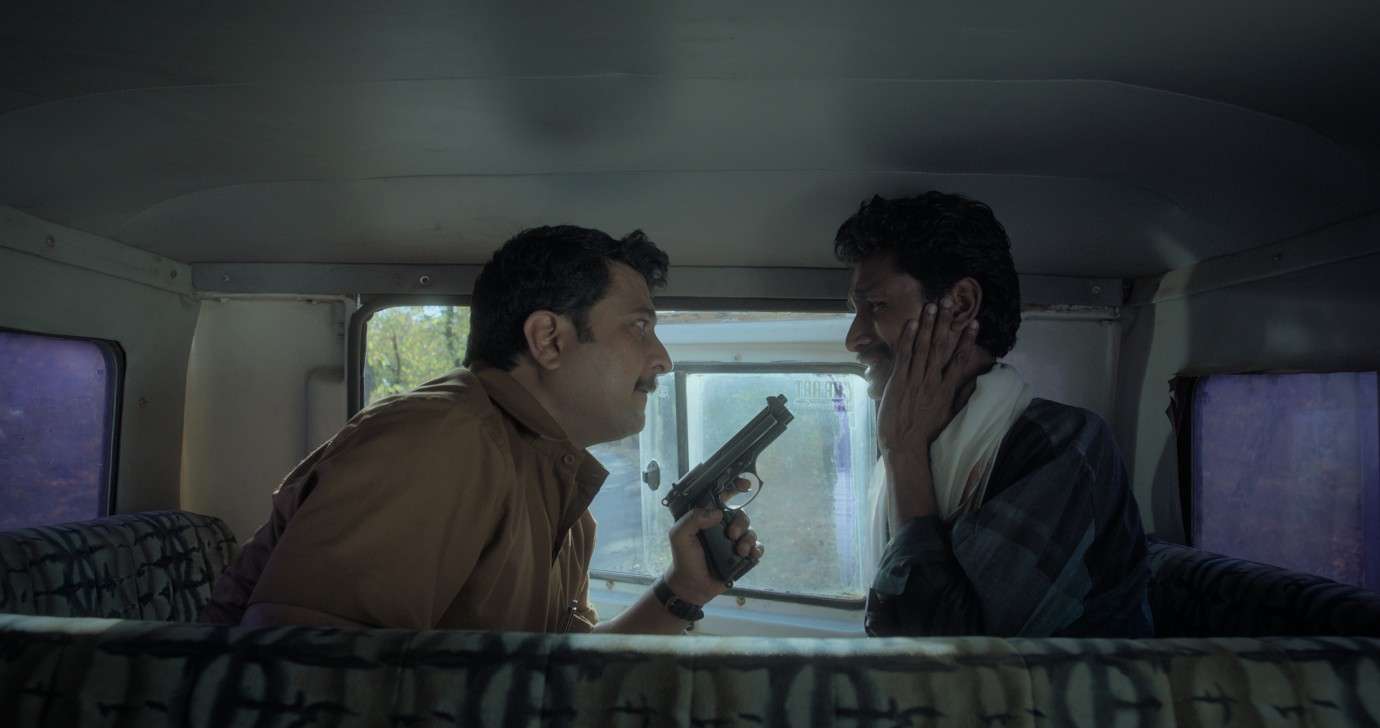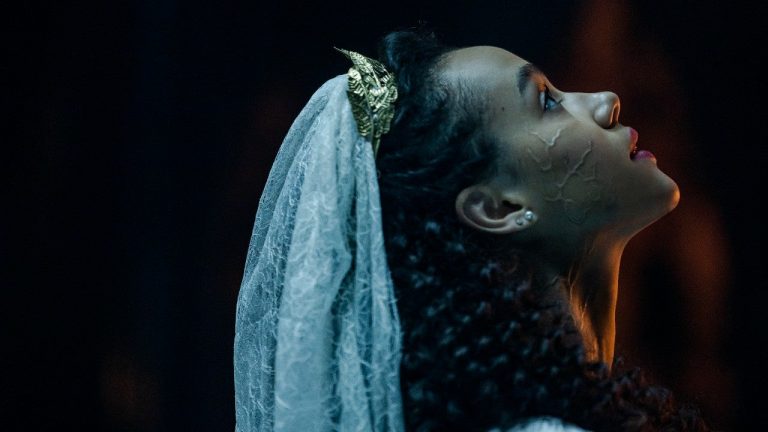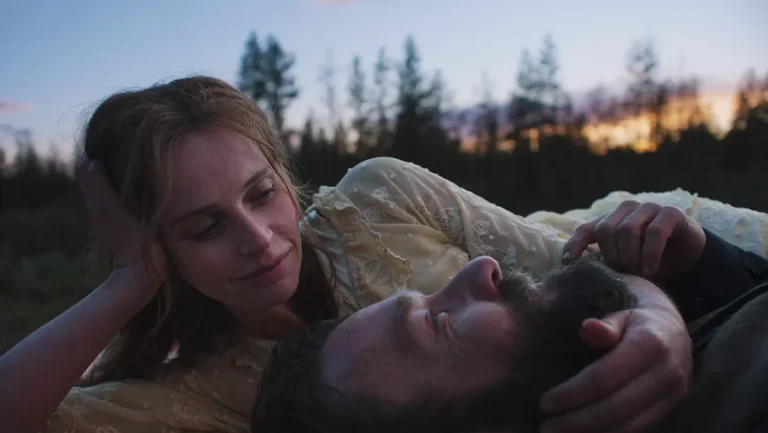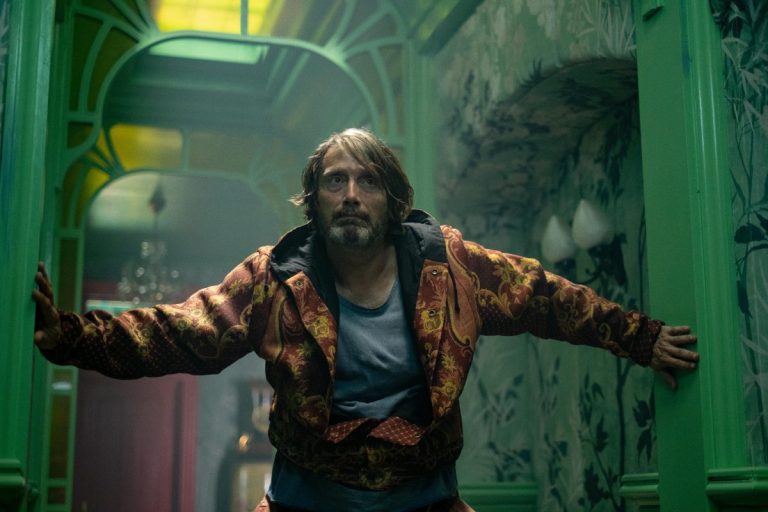“The person is more important than the bullet…”
Chhatrapal Ninawe’s debut feature film ‘Ghaath’ has not only been nominated for the GWFF First Feature Film Award at Berlinale 2023 but also selected as one of the Panorama choices. His outstanding direction in ‘Ghaath’ earned him the 15th Giuseppe Becce Award, bestowed by Cineclub Verona and FEDIC magazine during the same festival. While ‘Ghaath/Ambush’ might initially seem to delve into the deep-seated fissures within Indian society, particularly against the backdrop of the State versus Naxalite conflicts, this surface-level interpretation doesn’t do justice to Ninawe’s vision. The film is staunchly ‘anti-ideological’, focusing on the nuanced interplay between nature and its inhabitants, punctuated with surreal moments. Ninawe emphasizes the primacy of the individual, stating, “the person is more important than the bullet,” thus steering the narrative beyond mere political commentary.
Film critic and High on Film’s Virat Nehru caught up with writer-director Chhatrapal Ninawe before his film had its South Asian premiere at MAMI, to chat about why he wanted to make an anti-ideological film, how this surrealist narrative about grassroots issues came about, and what in the filmmaking process made him feel like Werner Herzog. Below are edited excerpts from their conversation.
Virat: Right at the outset, what really struck me is that this is a very interesting and surreal film about grassroots issues and the Naxalite movement. I don’t think I have a reference point where these sorts of issues have been covered and approached in a surreal way. For example, if you look at the middle ‘Jal’ segment, where one of the characters, ACP Nagpure, is stranded on an island, completely isolated from the rest of the world and spending time with another isolated character called Perku. We, as the audience, are always second-guessing whether that entire segment is even real, or it’s just one character’s imagination playing tricks. How did you manage to make a story which is very much about grassroots elements, into this kind of surreal narrative, because approaching it that way was not something that I was expecting.
Chhatrapal: “The thought of Perku as a character was an interesting accident. My friend and I were brainstorming and that’s when we thought of this character. As an artist, you get certain intuitions, but there’s always certain logic guiding that intuition. Over time, I realised why I wanted a character like Perku in the film.
We can all trace our ancestry back to Perku. We were all tribals in our past – if you go 30,000-35,000 years back in history – Our ancestors were tall, lanky hunter-gatherers like Perku. He is also the last of his tribe, living all alone and by himself. It’s very difficult to find a tribal character like Perku today in Central India. You have to go very remote in central India or the Andaman Islands, where you might find someone like him. So, that is the reference point and idea for a character like Perku. I found the friendship between someone like Perku and the modern, corrupt person, Nagpure, very interesting. Ultimately, in the whole film, I’m studying the emotion of trust. I wanted to explore how that emotion plays out.”
Virat: When you talk about trust, the only genuine relationship – which isn’t transactional and feels unconditional – is between Nagpure and Perku. That is, of course, before it goes in a completely different direction and Nagpure’s paranoia takes over. But, in that brief segment, it’s the only time where you can find a sense of genuine connection between two people who have nothing in common on the surface. What I found interesting was, in my reading of the film, that it’s only when you can genuinely isolate a person and remove any external influences that might impact their decision-making; it’s only then that one can start to foster a feeling of mutual trust between people. Of course, this feeds into the larger question that the film is exploring, which is how can two sides that are on the opposite ends of the spectrum, cross a threshold and come to an understanding of the other side’s perspective? And I liked how you explored this idea by trying to take away external influences as much as possible such that the characters are forced to rely on their instincts for their survival.
The film seems to circle back to this conundrum: how can we reach beyond our echo chambers when we are from such different backgrounds and experiences, and obviously, none of these grassroots issues can be resolved in any kind of easy way, there is no easy silver bullet solution to begin with. Any semblance of a resolution becomes even more out of reach as long as you work within systems that perpetuate violence at every degree.
Chhatrapal: “You put it very well. When the film played in Berlin [Berlinale], the audience was more curious about the backdrop of the film rather than the characters. What is Naxalite? What is a Maoist? What is happening in Central India? Since I do not need to spoon-feed such things to the Indian audiences, I’m really looking forward to the film playing at MAMI
The whole idea was to put two people together and ask – ‘what if’? _What if_ a person like Nagpure goes and meets a person like Perku. What kind of interactions will they have? How will they develop trust? In the film, if you observe, the first time Perku serves Nagpure food, he rejects it. But the third time, he accepts. So, these small things add up.
And this also happens in real life. Whenever we come across an unknown person, we think, “_yaar, ye thoda alag hai”_ (he’s different). Once we know him, we became friendly, and that barrier is gone. And you see this unfolding not just between Perku and Nagpure in the film, but in all first-contact situations – for example first outside contact with Amazonian tribes. All these first contact scenarios are based on trust.”

Virat: What I found interesting is that the film suggests that when we’re left to our own devices and not corrupted by other, outside forces, it’s the good side of our human instincts that actually comes out. This is probably antithetical to what a lot of other films have said, especially ones that explore first contact situations. I found that to be a hopeful note in an otherwise bleak film. This is a very interesting thesis that the film is exploring, about what it means to be human. Can we actually become better people as long as we are part of a system? Or do we need to reform systems in a way that they make us better human beings? As you said, it’s not about the backdrop, it’s not about the ideological politics. It’s a very humanist personal story about what it means to be a human being caught up within systems, whether it is the Naxalite hierarchy, or it is the police hierarchy, basically within any system. When you take that baggage away, the film wants you to think about what it means to connect with another person and just connect in a very honest way.
Chhatrapal: You spoke about how this film is doing something different in terms of exploring basic human instincts, and I want to address that.
The basic instinct is survival of the fittest. Our survival instincts made us compete and survive and then thrive. But there’s also cooperation – people came together when there was a catastrophic event to help each other. See, in our evolutionary history, there was a population bottleneck at a certain point in time. We survived that bottleneck by cooperating with each other. It’s a part of us. At the same time, there’s another part of us, which Raghunath speaks about in the film – that he had to kill to survive. If he doesn’t kill, someone will kill him. So, it’s a very strange world. Nature in itself isn’t good or bad. It’s both. The jungle is like that. It’s beautiful and cruel, both. So does human instincts.
Virat: Intellectual debates can happen from the outside. But what the film is exploring very interestingly is, what is the psyche of the people who are involved on a day-to-day basis in this struggle, whether it’s Falgun, Raghunath, or Nagpure. All these people are invested. And they also want a good life for themselves, and what a good life means to them, it’s very different in terms of their own understanding of what they want. For these characters, it’s not about the larger ideology, but very much about their personal instincts and their personal desires. And I think that was something that really shook me, and I was like, okay, let’s not be armchair critics about these issues. It’s very easy to investigate these scenarios as an outsider and claim that it is about this ideology or that ideology. But when the people themselves are involved in a conflict, it is very much about their personal desires, and what kind of a life they want. I think the film beautifully explores the conflict and how it affects people on a very personal level. Did you think that this is always going to be a story on a personal human level and not about the larger ideology? Because it’s hard not to get caught up in the larger ideology, like you said, because everyone wants that film, and not this film. And they start reading into the film as to why didn’t you make that other film that I wanted to see, instead of engaging with the film you did.
Chhatrapal: I was very clear that I wanted to do an ‘anti-ideology’ film. Let’s put the people first and understand their psyche rather than talking about ideologies. So, this was the starting point. And then the story evolved in a very organic fashion. I started with Falgun [as a character]. It was a short film, and it was filmed as one character study. And I realised, it was not working because I suddenly introduced two characters near the end of the short film. So I decided to introduce two more characters as separate character studies in two more chapters. And it became a triptych-structured feature film.
And throughout these chapters, I was sure that I did not want to get into ideologies. That has been done before many times. There are a lot of films which talk about it. You can also read about it. But what do you _feel_ about it? For me, feeling is _more_ important. And the person is more important than the bullet, which killed him. Rather, the ideology that’s behind the firing of that bullet.
Virat: Was there a particular reason in basing the film around Deori (Gondia) and that region? Because there are other Naxalite areas as well that you could’ve looked at.
Chhatrapal: The idea was to have the film set on the fringes of the Naxalite area. So, if it is set too deep inside a Naxalite area, where Maoists are powerful, it would have been a different story, because the power dynamics will change completely. On the fringes, trust is more important. Also, the people living on the border will suffer the most in any kind of war, whether it is low-intensity warfare or on a bigger scale.
Also, the locations were also very close to my ancestral place where my grandfather used to live, very close to Perku’s island. It is like going to your roots. The language spoken there is exactly the same as in the screenplay. It was also a very beautiful location. I thought that location would bring a certain rawness to the film
Virat: What kind of threw me off in the beginning is framing the film as ‘Jal, Jungle, Zameen’ and you automatically start thinking that this is going to be an ideology film, and it is only somewhere by the 20–25-minute mark that you have to recalibrate your brain and consciously tell yourself not to go there. Was there a particular reason, apart from the overall dynamics, because of which you wanted the chapters to be called that?
Chhatrapal: First of all, the call-to-action is ‘_Jal, Jungle, Zameen’,but in Ghaath, it is ‘Zameen, Jal, Jungle’, which is my personal take on it. Also, all these elements are natural elements first and political slogans later. All of them are very important for the tribals.
Take “Zameen”. The conflict starts right from the British times till today. The tribals believe the land is their mother and you can’t ask to pay taxes on your mother. Then, you look at ‘Jal’. It is about life which is flowing. One can drink it. One can do agriculture. One can purify himself. And lastly, ‘Jungle’, which is everywhere in the central India. A major source of livelihood. This relationship comes first, and the political slogan comes after.
I started with different names – same story, same structure, but totally different names. My DOP, while we were doing the recce, he asked me about this slogan. We soon realised that the screenplay organically showing more of ‘Zameen’ (land) in the first chapter, and more of ‘Jal’ (water) in the second. And Jungle in the third. So I decided to treat the film and each chapter, which will evoke the feelings of these natural elements. Also, let there be a subtext, whether it’s a political or essential element of tribal life.
Virat: Talking about open-ended discussion points, it brings me to this idea that the film doesn’t signpost anything. As South Asian viewers, we have become so used to signposting, particularly if you’re only used to mainstream, commercial films. This film really, for me, it was enjoyable because you are an active participant rather than a passive consumer. Were you ever tempted to bring in more signposting?
Chhatrapal: One thing I was very clear about, I never wanted to lead the audience. To all my collaborators, my instruction was very clear. We were able to keep the audience interested because we weren’t trying to lead the audience in a certain direction, instead of just trusting them that they would follow the narrative. Let the audience follow the story, instead of forcing them to a certain story. That was the whole idea.
I was trying to make a film for a long time, and it wasn’t happening. I thought, let me make the film, the way I want. I treated it as my last film. I did not think about what the audience would think. I thought, let me express myself. I was very free and never thought about signposting.
I could’ve expressed myself better, obviously, but that’s a feeling every director has.
A lot of people who saw my incomplete first film – which never came out – that was also immersive, seamlessly flowing and yet unpredictable. The screenplay flows in an unexpected direction, and then unexpected events happen. It might be because I do not write synopsis and treatments. I just write a screenplay from start to finish. While writing, I probably get bored and want to surprise myself. So I divert the story in different directions. It comes naturally. The result is an unpredictable plot of unexpected events and no signposting.
(both laugh)
Virat: Was there some kind of workshopping? How did you get the actors accustomed to the environment? Because the film relies so much on them convincing you that they belong in that world, and it must not have been easy. I’m not sure how many of those people have really grown up in those areas or ever been there.
Chhatrapal: Most of the cast are from east Vidharbha. Even though some of them are living in the city, they’re all quite aware of the world we’re trying to create. So, I didn’t have to do any kind of acting workshop with them. We only did a camera workshop, because they were not very experienced in front of the camera.
Janardan, who plays Perku, an aborigine, lives in Dongri, in Mumbai. He has been to jungles, but not felt them. So we did a special workshop for him. Idea was to help Janardan find the character of Perku.
So on the first day of the workshop, we took him on a jungle safari. We were lucky to witness a leopard in a hunt. That was the first thing he saw. Then, he saw a bear in action, which is also a part of the scene in the film. Then, he interacted with the forest guards.
On the Second day, we decided to do a fake hunt. Instead of spears, we had only wooden sticks. But we were safe. There were three of us. Me, Janardan and Dhananjay. Dhananjay, who played Falgun is also an expert jungle trekker like me.
So, we started to follow the pug marks of deer. After spending almost half a day, we lost those tracks. The idea was to show how difficult Perku’s life must, be and to show how difficult it is to hunt. Perku is not a dimwit. He must be very smart to survive alone in the jungle.
On the third day, we went to an island. We stayed on the island. We explored that island. And then we brainstormed how the characters would learn the language. So, that’s what you see in the film, that the characters learn from the river and from the fishermen
On the fourth day, I wanted to spend a night in the jungle. But my production house said no you can’t do that. So, we found a ‘machaan’ house in a very remote jungle portion. And we stayed there. The idea was to show the importance of the moon. The moon plays a crucial part in the jungle. So basically, you know, we’ve spent a whole night there and the moon vanished, and the whole jungle suddenly became a different character. I just wanted to show how the jungle and human beings interact in such an environment.
Suruchi, who plays Kusari, is from Thane City. We wanted to take her to a remote village. Idea was to find the character of Kusari. On the way, we literally saw burnt vehicles with a red banner over them.
Our production house was not aware of the workshop. I was doing it on my own. So I was a bit nervous for the safety of my actress, my costume designer and my assistants. But we had some local help. On our way to the remote village. We stopped far outside in the jungle. Our driver said that we couldn’t go further because it was too difficult to drive. So, we trekked four to five kilometres through a deep jungle. We reached a village. I asked Suruchi to find Kusari, among the tribal women there. She interacted with them and found references for the character. On our way back, we found our drivers just the outskirts of the village. They were so uncomfortable and felt alone, that they did extreme off-road to reach us. After that we went to a place called ‘Tipagarh’, which is Raghunath’s Den in the film, and on the way back we were chased by a leopard!
This was by far the most enjoyable and adventurous part of the process. You know. _“Herzog kind of feeling aaya mere andar, dil mein”_ (I felt like I was being Werner Herzog, deep in my heart).
Also, Read: Kennedy (2023) ‘MAMI’ Review
Ghaath / Ambush played at the JIO MAMI Mumbai Film Festival in the Focus South Asia section.






![Hotel Mumbai [2019] Review: Go Check In](https://79468c92.delivery.rocketcdn.me/wp-content/uploads/2019/03/Hotel_Mumbai_HOF-768x403.jpeg)